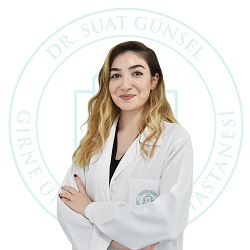
Today is the 2nd of April World Autism Awareness Day. Well, do we have enough information about autism? Dr. Suat Günsel University of Kyrenia Hospital Specialist Psychologist Feriha Kaşifoğlu answered our questions:
What is autism?
Autism or autism spectrum disorder is one of the common developmental disorders. Autism is a lifelong disability generally diagnosed within the first 3 years of life, characterized by restricted interests and repetitive behaviours which results in difficulties with social communication and social interaction and as a result individuais with autism live in their own world.
What are the symptoms of autism?
The determination of whether a child has autism starts at the developmental stage. The most common symptoms include; difficulties in the development of nonverbal communication skills such as eye contact, facial expression and body language.
In addition to this, we may list the following problems as well; delayed speach, difficulty in maintaining a conversation that has already begun, a stereotyped or repeated conversation, or repeating a certain sentence that they have previously heard (echolalia).
In some cases, showing no companionship with peers, showing no interest to games played by their peers, not responding when called out by their name, not paying attention and lack of empathy could be observed. In some autistic children repeated movements such as continious shaking and hand clapping may also be observed. To be not aware of the dangers, laughing and crying without a reason and not reacting to changes are also symptoms of autism.
At this point, what would you recommend to parents who have a child with autism?
Early recognition and treatment are very important, although parents might find theirself having a difficult time accepting the facts of autism. To consult a child mental health professional and child neurologist about the problems and doubts you have noticed in your child will help you both to relieve and play a key role in the treatment.
These specialits perform a detailed assessment for diagnosis and begin treatment with a variety of tests to define the level of autism, intelligence, adaptation, communication skills, and behavioral development. The main objective of the treatment is to encourage the child to show their potential and to develop skills to fulfill responsibilities. It is known that autistic children respond well to person centered and effective treatment plans which has short- and long-term positive results. As a result, autistic individuals can live a quality and healthy life with the right approach and treatment.